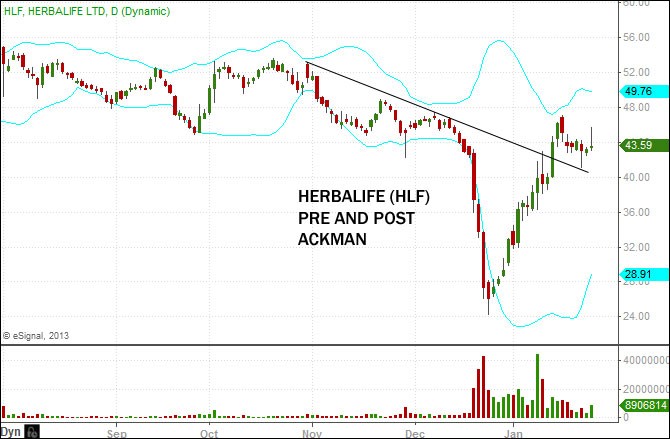Hedge funds hire biggun
Post on: 12 Июнь, 2015 No Comment

Heavyweight firm tapped by hedge fund industry to help sway Congress; politicos debate how much regulation the industry needs to avoid the next economic disaster.
Facing the inevitable assault of government regulation, the hedge fund industry is quietly building up its arsenal. The Managed Funds Association, the industry trade group, just hired heavyweight lobbying firm Brownstein Hyatt Farber Schreck to handle its relations with the federal government. Congress is mulling over how to regulate and rein in the $1.5 trillion hedge fund industry.
The lobbying firm already represents the U.S. Department of Energy, the National Association of Homebuilders and the Private Equity Council, among others. Investment firms Apollo Management and Citadel Investments are also among its clients.
With the threat of multiple bills floating around Capitol Hill, the Managed Funds Association is pumping money into its cause: It spent $750,000 in lobbying fees in the first quarter of this year, according to filings listed on OpenSecrets.org. The group is expected to outspend last year’s total of $2.5 million.
With approximately 60% of hedge fund assets managed from Manhattan, the Big Apple is still considered the hedge fund capital. The MFA is hoping that Denver-based Brownstein Hyatt will give it an edge with Washington legislators: the firm hosted the kickoff party at last year’s Democratic National Committee, held in the Denver Art Museum. One of its name partners, Steve Farber, was chief fundraiser for the Democratic National Convention.
The proposed bills offer the industry some serious challenges. They include:
—The Hedge Fund Transparency Act, proposed by Sens. Charles Grassley (R-Iowa) and Carl Levin (D-Mich.) in January, which would require hedge funds to register with the U.S. Securities and Exchange Commission, among other regulations
—The Prevent Excessive Speculation Act, introduced by Mr. Levin in February, which would limit derivatives trading, a tactic heavily used by hedge funds, and authorize the Commodity Futures Trading Commission to regulate the industry onshore and even offshore.
—The Fund Adviser Registration Act of 2009, sponsored by Reps. Michael Capuano (D-Mass.) and Michael Castle (R-Del.), which would require hedge fund managers to register as investment advisors. Previously, funds with fewer than 15 clients were exempt from such registration.
Much of the hedge fund industry supports registering fund managers with the SEC, but balks at embracing some of the more intrusive requirements.
Richard Baker, president and chief executive of the MFA, recently testified in favor of stricter regulation, although tepidly, before the House Financial Services Subcommittee on Capital Markets.
“Though hedge funds were not the cause of the problems in our financial markets and our economy, we believe that (we) share the responsibility of restoring stability and investor confidence,” Mr. Baker said in his testimony.
Mr. Baker said the MFA “strongly encourages” Congress and the administration to create regulations that apply to all private investment firms—including venture capital and private equity shops—and not only hedge funds.
He also helpfully warned of an “additional burden” of bringing hedge funds under federal oversight: Such a move might overwhelm regulators, overtax the system and could “impair” regulators’ ability to fulfill even their existing responsibilities.
It’s unclear if Mr. Baker’s testimony swayed opinions. But last month, two dissident senators were persuaded to drop their objections to former Goldman Sachs partner Gary Gensler becoming chairman of the Commodity Futures Trading Commission.
Mr. Gensler’s nomination had been held up for months by Sens. Bernie Sanders (I-Vt.) and Maria Cantwell (D-Wash.), who argued that Mr. Gensler was too cozy with the derivatives world. In addition to being a Wall Street master, Mr. Gensler is a former Treasury Department official under President Bill Clinton who helped write policy that exempted credit default swaps from regulation. Many blame the complex securities for last year’s market collapse.
“People misunderstand that regulating for the sake of regulating won’t accomplish a decrease in systematic risk,” said Kenneth Heinz, president of data firm Hedge Fund Research Inc. “The reality is that 75% of hedge fund firms located in the U.S. are already registered with the SEC.”
The industry has a few other political aces in its corner. New York Sen. Chuck Schumer sits on both the Senate financing committee and the banking committee. And the lawyer heading the MFA’s lobbying effort, Carmencita Whonder, joined Brownstein Hyatt’s Washington office in 2007 after serving as Mr. Schumer’s principle adviser on the banking committee.
Senior Counsel at the firm, R. James Nicholson, is a chairman of the Republican National Committee, and one of Brownstein Hyatt’s policy directors is Judy Black, a key fundraiser for Sen. John McCain (R-Ariz.) in his 2008 presidential campaign.














